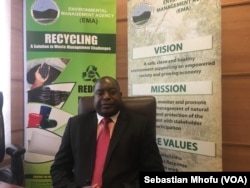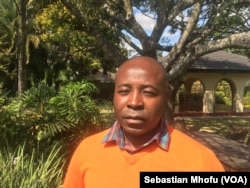Zimbabwe's Environmental Management Agency has temporarily lifted its ban on the use of expanded polystyrene (EPS) as food packaging material to allow businesses to clear their stocks.
The Agency says it has given businesses until October 17 to stop using existing containers and replace them with recyclable or biodegradable ones. The reprieve follows an outcry from businesses last week when the government board imposed an immediate ban of EPS, also known as kaylite.
Environmental Management Agency spokesman Steady Kangata says the new deadline won’t affect the ban itself.
"The ban still stands, it was only a reprieve of three-months given just to allow businesses to [tidy] up. It is also in line with the principle of natural justice to give them time to mop up their kaylite. Furthermore there are conditions that they were given, that within three months they are supposed to initiate a water management program that would ensure that the environment is clean. Not that kaylite would be seen all over," Kangata said.
The EPS containers are among the garbage clogging drainage in Harare and contributing to flooding.
The government also says EPS emits toxic chemicals when the containers are burned, and garbage is routinely burned in Zimbabwe. Environmentalists in Zimbabwe are applauding the ban, but say the government has not gone nearly far enough. Other African countries, including most recently Kenya, have banned the use of plastic bags.
The president of the Confederation of Zimbabwe Retailers, Denford Mutashu, welcomes the three-month reprieve given to his members.
"It is not enough but at least it is a breathing space. There are some companies that have invested into the production of kaylite. We will also be helping them to lobby through the government to ensure that they get a reprieve. Because it is not easy for someone to bring their machinery here and two years down the line they are asked to move out or to stop production. So this is a serious area of concern."
But the Environment Management Agency maintains the law under which the ban of EPS is being put in effect was enacted in 2012, and businesses had time to switch to other food packages or ask customers to it in instead using EPS.
When the reprieve ends, the government says anyone found breaking the EPS ban could be fined from $30 to $5,000.






